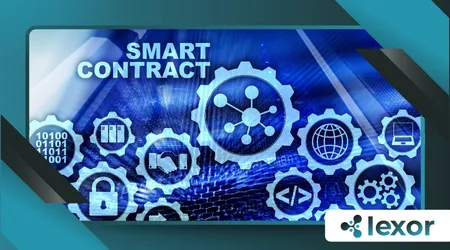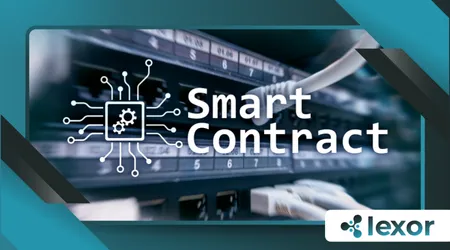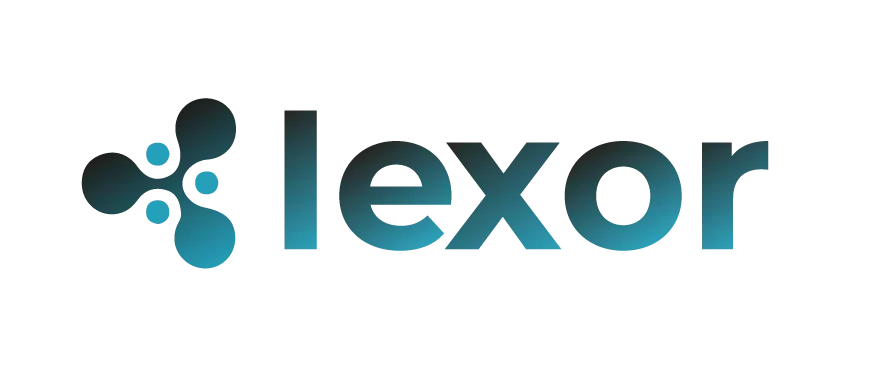Smart Contracts: A Comprehensive Guide for Beginners
In the ever-evolving world of technology, Smart Contracts have emerged as a revolutionary tool, transforming how we execute agreements and conduct transactions.
But what exactly are they, and why are they gaining so much attention?
This guide is designed to provide beginners with a clear, comprehensive understanding of Smart Contracts, their applications, benefits, and potential challenges.
Whether you’re a tech enthusiast, a business professional, or simply curious, this article will equip you with the knowledge to navigate this innovative landscape.
What Are Smart Contracts?

At their core, Smart Contracts are self-executing agreements written in code and stored on a blockchain.
Unlike traditional contracts, which rely on intermediaries like lawyers or notaries, Smart Contracts automatically enforce the terms of an agreement when predefined conditions are met.
This automation eliminates the need for trust between parties, as the code itself ensures transparency and fairness.
The concept of Smart Contracts was first proposed by computer scientist Nick Szabo in the 1990s, long before blockchain technology became mainstream.
However, it wasn’t until the advent of blockchain platforms like Ethereum that Smart Contracts became a practical reality.
Today, they are used in various industries, from finance to supply chain management, to streamline processes and reduce costs.
One of the most compelling aspects of Smart Contracts is their immutability.
Once deployed on a blockchain, the terms of the contract cannot be altered, ensuring that no party can manipulate the agreement.
This feature, combined with their decentralized nature, makes Smart Contracts a powerful tool for fostering trust in digital interactions.
How Do Smart Contracts Work?

To understand how Smart Contracts function, it’s essential to grasp the underlying technology: blockchain.
A blockchain is a distributed ledger that records transactions across a network of computers.
Each transaction is grouped into a “block,” which is then linked to the previous one, forming a “chain.” This structure ensures that data is secure, transparent, and tamper-proof.
Smart Contracts operate on this blockchain infrastructure.
They are written in programming languages like Solidity (used by Ethereum) and are deployed as part of a blockchain transaction.
Once deployed, the contract waits for specific conditions, known as “if-then” statements, to be met.
For example, if Party A sends a payment to Party B, then ownership of a digital asset is transferred automatically.
The execution of Smart Contracts is facilitated by nodes, which are computers connected to the blockchain network.
These nodes validate the conditions and ensure that the contract is executed as intended.
Because the process is decentralized, there’s no single point of failure, making Smart Contracts highly reliable and secure.
++ Smart Security Systems: Protecting Your Digital Home
Key Features of Smart Contracts
1. Automation
One of the most significant advantages of Smart Contracts is their ability to automate processes.
By removing the need for manual intervention, they save time and reduce the risk of human error.
For instance, in insurance, a Smart Contract can automatically process claims and issue payouts when specific conditions, such as proof of damage, are met.
2. Transparency
All transactions and terms of a Smart Contract are recorded on the blockchain, making them visible to all parties involved.
This transparency builds trust and ensures that no one can alter the agreement without consensus.
3. Security
Thanks to blockchain’s cryptographic encryption, Smart Contracts are highly secure.
Once deployed, they are nearly impossible to hack, providing a safe environment for executing agreements.
Applications of Smart Contracts
1. Finance
In the financial sector, Smart Contracts are revolutionizing how transactions are conducted.
They enable peer-to-peer lending, automate payments, and facilitate decentralized finance (DeFi) applications.
For example, platforms like Aave and Compound use Smart Contracts to allow users to lend and borrow cryptocurrencies without intermediaries.
2. Supply Chain Management
Smart Contracts are also transforming supply chains by enhancing transparency and efficiency.
They can track the movement of goods, verify authenticity, and automatically release payments upon delivery.
This reduces fraud and ensures that all parties adhere to the agreed terms.
3. Real Estate
In real estate, Smart Contracts simplify property transactions by automating tasks like title transfers and escrow payments.
This eliminates the need for intermediaries, reduces costs, and speeds up the process.
Benefits of Smart Contracts
1. Cost Efficiency
By eliminating intermediaries, Smart Contracts significantly reduce transaction costs.
This is particularly beneficial for industries like finance and real estate, where fees can be substantial.
2. Speed
Traditional contracts often involve lengthy processes, from drafting to execution.
Smart Contracts, on the other hand, are executed instantly once conditions are met, saving time and improving efficiency.
3. Accuracy
Since Smart Contracts are written in code, they eliminate the risk of misinterpretation or errors that can occur with paper-based agreements.
++ Cryptocurrency Security: Protecting Your Digital Assets in an Evolving Digital Landscape
Challenges and Limitations
Despite their many advantages, Smart Contracts are not without challenges. One major limitation is their inflexibility.
Once deployed, the terms of a Smart Contract cannot be changed, even if both parties agree to modifications. This rigidity can be problematic in situations where flexibility is required.
Another challenge is the legal recognition of Smart Contracts.
While they are legally binding in some jurisdictions, others have yet to establish clear regulations.
This uncertainty can deter businesses from adopting the technology.
Finally, coding errors pose a significant risk. If a Smart Contract contains bugs or vulnerabilities, it can be exploited, leading to financial losses.
The infamous DAO hack in 2016, where $50 million worth of Ethereum was stolen due to a coding flaw, serves as a cautionary tale.
Future of Smart Contracts
The future of Smart Contracts looks promising, with advancements in blockchain technology and increasing adoption across industries.
As platforms like Ethereum continue to evolve, we can expect Smart Contracts to become more versatile, secure, and user-friendly.
Moreover, the integration of artificial intelligence (AI) and Internet of Things (IoT) with Smart Contracts opens up new possibilities.
For example, IoT devices could trigger Smart Contracts based on real-time data, such as temperature or location, enabling automated processes in sectors like logistics and healthcare.
As regulatory frameworks mature and public awareness grows, Smart Contracts are likely to become a standard tool for conducting digital transactions, paving the way for a more efficient and transparent future.
Comparison: Smart Contracts vs. Traditional Contracts
| Feature | Smart Contracts | Traditional Contracts |
|---|---|---|
| Intermediaries | None | Lawyers, notaries, etc. |
| Execution | Automatic | Manual |
| Transparency | High | Limited |
| Cost | Low | High |
| Flexibility | Low | High |
| Security | High | Moderate |
How to Get Started with Smart Contracts
If you’re interested in exploring Smart Contracts, here are a few steps to get started:
- Learn the Basics of Blockchain: Understanding blockchain technology is crucial, as it forms the foundation of Smart Contracts.
- Choose a Platform: Ethereum is the most popular platform for Smart Contracts, but others like Binance Smart Chain and Polkadot are also worth considering.
- Learn a Programming Language: Solidity is the most widely used language for writing Smart Contracts.
- Experiment with Testnets: Before deploying a Smart Contract on the mainnet, test it on a testnet to ensure it functions as intended.
Conclusion
Smart Contracts represent a paradigm shift in how we conduct agreements and transactions.
By leveraging blockchain technology, they offer unparalleled transparency, security, and efficiency.
While challenges remain, the potential of Smart Contracts to transform industries is undeniable.
As we move toward a more digital and decentralized future, understanding and adopting Smart Contracts will be essential for staying ahead of the curve.
Whether you’re a beginner or an experienced professional, now is the time to explore this groundbreaking technology and unlock its full potential.
By following this guide, you’ve taken the first step toward mastering Smart Contracts.
With continued learning and experimentation, you’ll be well-equipped to navigate this exciting frontier and harness its power for your personal or professional endeavors.
++ Cryptocurrency investment basics: how to start your digital portfolio
